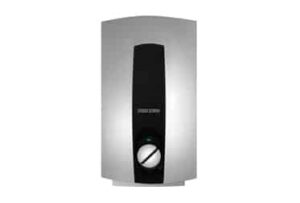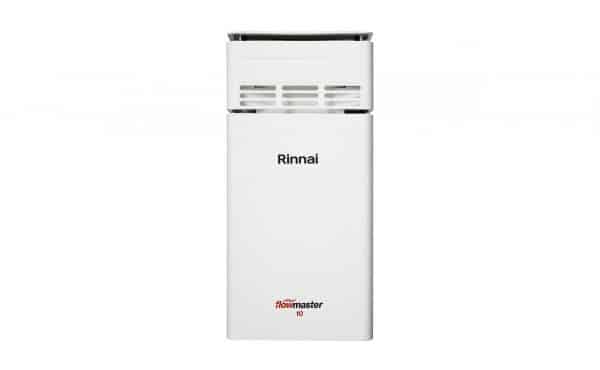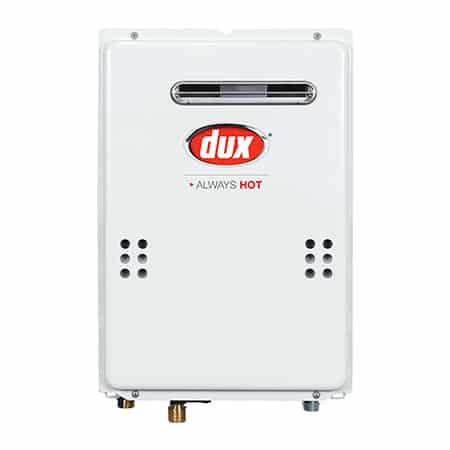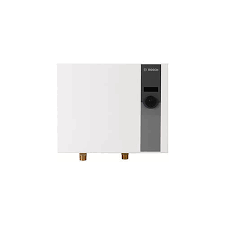Can you get instantaneous electric hot water single-phase?
Yes, instantaneous electric hot water systems, also known as tankless electric water heaters, can provide hot water on demand, without the need for a storage tank. These systems heat water as it flows through the unit, using an electric heating element.
They are more energy efficient than traditional storage tank water heaters, because they do not have to continuously heat and maintain a large tank of water at a set temperature. They also have the advantage of providing hot water instantly, eliminating the wait time for a storage tank to heat up.
However, instantaneous electric hot water systems are generally not as powerful as gas-powered tankless systems, and may not be able to provide enough hot water for large households or commercial buildings.
Transform Your Home’s Hot Water Experience with Instantaneous Electric Hot Water Single-Phase.
What is a single-phase electric water heater?

A single-phase electric water heater is a type of water heating system that uses electricity as its power source and only has one phase of electrical power.
This means that the electrical power supply to the heater only has one alternating current (AC) waveform, as opposed to a three-phase system, which has three separate AC waveforms.
Single-phase electric water heaters are typically used in residential and small commercial settings. They are easy to install and maintain but are less efficient than three-phase systems.
Can you run a 3 phase water heater on a single phase?
It is technically possible to run a 3-phase water heater on a single-phase power supply, but it may not be the most efficient or cost-effective option and we don’t recommend it.
Three-phase water heaters are designed to be used with a 3-phase power supply, which provides more consistent and reliable power. When running a 3-phase water heater on a single-phase power supply, it may not be able to function at its full capacity or may experience power fluctuations.
Additionally, the cost of converting the electrical system to support a 3-phase water heater on a single-phase power supply may be significant. It’s recommended to check with the manufacturer or a licensed electrician to see if it is possible and if it makes sense in terms of cost and efficiency.
Is it cheaper to run single-phase or 3 phase?
It is not definitely clear whether it is cheaper to run a single-phase or 3-phase electric water heater, as the cost depends on various factors such as the size of the water tank, the temperature setting, and how often the water is used.
However, Three-phase power systems are less expensive to run over time when compared to single-phase, but the cost of electricity and the efficiency of the hot water system also play a role in determining the overall cost.
How much do instantaneous electric hot water systems cost to run in Melbourne?
The running costs vary based on the model of electric hot water system. To find what a system costs to run, you need to know how much electricity it uses. This is measured in kWh.
How do you calculate kWh on a hot water system?
The amount of kWh a hot water system will use depends on the water tank size of the system, the temperature setting, and how often the water is used. For example, a 125-litre tank at 55 degrees Celsius that’s used twice a day will use about 3 kWh per day.
What is the lowest kWh hot water system?
Hot water systems vary in energy efficiency. A low Btu input system generally uses between 2 and 4 kWh per day, while a high BTU input hot water system can use as much as 7 or 8 kWh per day.
The cost of 1 kWh of electricity in Melbourne is $0.20. Assuming the water heater uses 5 kWh per day, that adds up to $1 per day or $7 per week.
To calculate the kWh usage of a hot water system, you can use the following formula: (Tank size in gallons x 12) x (Temperature Rise in °F) ÷ (Efficiency rating of the system) x (Number of hours of use per day).
This will give you an estimate of the number of kWh the system will use per day. To calculate the monthly or annual cost, you will need to multiply the daily usage by the cost of electricity per kWh, which varies depending on location and time of use.
In Melbourne, you can check the cost of electricity per kWh on your utility bill or by contacting your electricity provider. Additionally, you should consider the type of instant hot water system you are using, as some models may be more energy efficient than others, which will affect the running costs.
What is the main disadvantage of using a single-phase electric instant hot water system?
The main disadvantage of using a single-phase electric instant hot water system is that it may not be able to handle high demand household. Since instant hot water systems heat the water on demand, they require a lot of power to do so.
A single-phase electric instant hot water system may not be able to provide enough power to heat the water quickly enough to keep up with high demand. This can lead to a lack of hot water, or water that is not hot enough. A three-phase electric instant hot water system would have a higher recovery rate, making it a better option for households with high hot water demand.
Additionally, a single-phase instant hot water system may have a lower flow rate, which means it may not be able to deliver water as fast as a three-phase system.
The main advantage of using a single-phase electric instant hot water system is that it is energy efficient, as it heats water only when it is needed and does not waste energy keeping a tank of water hot when not in use.
Additionally, since it does not require a storage tank, it takes up less space in the home. It also eliminates the potential issues associated with a storage tank such as corrosion, leaks, and the need for regular maintenance.
Furthermore, it is a great option for smaller households with lower hot water demand, as it can provide hot water on demand while minimising energy consumption.
What are the pros and cons of using single-phase electric hot water?
Single-phase electric hot water Pros
- Quick to install: Single-phase electric hot water systems can be quickly installed in most residential and small commercial settings, making them a convenient option for many customers.
- Low maintenance: Single-phase electric hot water systems have relatively few moving parts, which means they require less maintenance compared to other types of systems.
- Safe to use: Electric hot water systems do not produce harmful emissions, making them a safer option than gas-powered systems.
- Cost-effective: Single-phase electric hot water systems are typically less expensive than three-phase systems, making them a more budget-friendly option.
- Energy efficient: Many electric hot water systems are designed to be energy-efficient, helping to reduce energy costs for the homeowner.
Single-phase electric hot water Cons
- Limited hot water supply: Single-phase electric hot water systems may not be able to provide enough hot water for large households or commercial buildings.
- High energy costs: Single-phase electric hot water systems may have higher energy costs than other types of systems, especially if they are not energy-efficient.
- Risk of electrical shock: Single-phase electric hot water systems pose a risk of electrical shock if not installed or maintained properly.
- Limited service life: Single-phase electric hot water systems have a limited service life, typically 8-12 years, and will need to be replaced sooner than some other types of systems
- Dependence on electricity: Single-phase electric hot water systems depend on a reliable electricity supply to function, which can be an issue in case of power outages or other electrical issues.
What is the best instant electric hot water system?
The best instant electric hot water system should be energy efficient, cost-effective, and affordable.

Stiebel Eltron – DHCE6/50 or DHCE8/50
Electronically controlled instant hot water up to 50°C with the DHCE 6/50 and DHCE 8/50. The electronically controlled DHCE single phase instantaneous water heaters from STIEBEL ELTRON.
These single phase instant hot water systems are ideal for low flow installations as the water heater has a switch on flow rate at only 1.5 litres per minute.
With installation flexibility in mind, the DHCE hot water system is compact in design and ideal for those applications where space is tight.

Rinnai – Flowmaster 10
This compact appliance will deliver hot water without the need for a power point, ideal for replacement of current systems or low demand hot water applications whilst featuring class leading gas efficiency and a comprehensive warranty.

Dux – Always Hot
Compact and efficient, Dux’s latest range of Continuous Flow units are an excellent option for Australian homes.
Dux gas continuous flow water heaters heat the water only as needed, not wasting energy by keeping water in a tank hot, earning it up to a 6.4 star equivalent energy efficiency rating.
With several flow capacity models available, ensure you select a Dux continuous flow water heater that best suits to the number of outlets in the home.

Bosch – Electric Tankless
The compact and powerful BOSCH WH27 Tronic 6000 will supply your entire house with hot water when and where you need it.
This tankless electric water heater works “on-demand” to eliminate the wait for hot water. This heater works at 97% thermal capacity, reducing any stand by water loss. The built-in flow sensor ensures a constant output temperature across all applications.
This heater delivers hot water to 1-3 major applications at a time, anywhere from a residential home to an office space. GPM output at temperature rise of: 75 degrees: 2.4 output, 60 degrees: 3.0 output, 45 degrees: 3.5 output.
Where can you get an instantaneous electric single-phase water heater?
Right here! Call us today to get an obligation free quote. We can help you find the right water heater system for your house and install it for you. We supply and work with all the major water heater brands in Australia that we mentioned above such as Bosch and Rinnai.
If you’re in need of a reliable and safe installation of an electric water heater in your home, our plumbing company is the solution you’re looking for.
The problem with many installations is the lack of proper inspection and safety measures, which can lead to future issues and even hazards. However, we take pride in our commitment to ensuring the health and safety of our clients by performing thorough inspections and pressure tests before we sign off on the installation.
Our licensed and insured professionals are equipped with the expertise and experience needed to provide a top-quality installation. And to give you peace of mind, we offer a lifetime labour warranty on our work. Choose us for your electric water heater installation and purchase, and you can rest assured knowing you’re in good hands.
How to install a single-phase electric instant hot water system?
This is a job that’s best left to the professionals. Give us a call today and get a quote or make a booking online and we can do an on site assessment and give you a quote on the spot.
Here’s how we do a basic installation:
- Begin by shutting off the main power supply to the area where the hot water system will be installed.
- Next, locate the area where the system will be installed and ensure that it is near a suitable drain for the discharge of any excess water.
- Install the water inlet and outlet connections to the hot water system, making sure that they are tightly secured.
- Connect the cold water supply to the inlet connection and the hot water outlet to the hot water supply.
- Install the electric wiring for the system, making sure that all connections are secure and that the grounding wire is properly connected.
- Turn the main power supply back on and test the system to ensure that it is functioning properly.
- Turn on the water supply and allow the system to fill with water.
- Turn on the power to the system and set the desired water temperature.
- Test the hot water at the outlets to ensure that it is at the correct temperature.
- Finally, turn off the power to the system and turn off the water supply.
It is important to always refer to the manufacturer’s instructions when installing any type of hot water system. If you are not experienced in working with electrical and plumbing systems, it is best to hire a professional plumber to install the system for you.
Final thoughts on instantaneous electric hot water single-phase
Instantaneous electric hot water single-phase system is a type of water heating system that uses electricity as its power source and has only one phase of electrical power. They are typically used in residential and small commercial settings, easy to install and maintain, but less efficient than three-phase systems.
Pros include quick installation, low maintenance, safe, cost-effective and energy-efficient. Cons include limited hot water supply, high energy costs, risk of electrical shock, limited service life, and dependence on electricity.
The main disadvantage of using a single-phase electric instant hot water system is that it may not be able to handle high demand household. This can result in a lack of hot water or water that is not hot enough. The main advantage is that it is energy-efficient and does not require a storage tank.
The running costs of instantaneous electric hot water systems vary depending on the model. It can be calculated by knowing how much electricity is used, measured in kWh.
Give us a call today or make a booking online now to get an instant electric hot water system installed in your home.
In the event of an urgent problem with your water heater we’re always nearby. We’re the preferred local plumber in Hawthorn, Richmond, Kew, and Camberwell thanks to our rapid response times, quality workmanship, and customer care.

